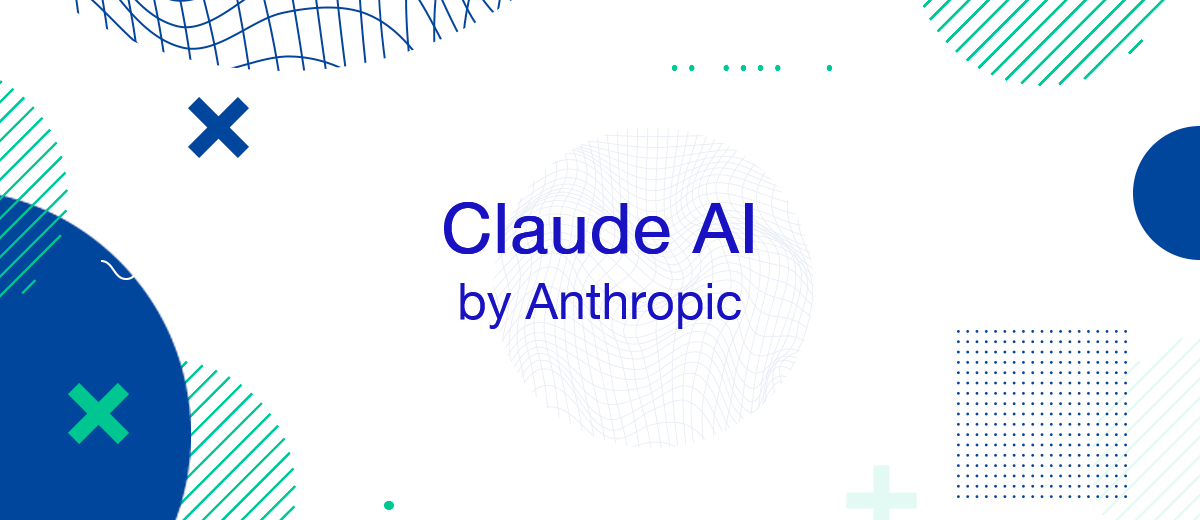Generative AI technologies are the main IT trend of recent years. Smart chatbots created with their help have proven themselves in many areas, becoming useful virtual assistants to humans. The demand for neural networks stimulates many companies to actively work in this direction. One of the young but very promising projects in the field of generative AI is the chatbot Claude AI, developed by the startup Anthropic.
Claude is already competing with OpenAI's famous ChatGPT. Therefore, our article will be devoted specifically to it. You will learn about the features of creating this neural network, get acquainted with its technology and algorithms, user experience and the possibilities of its application. Separately, we will elaborate on the security standards implemented by the developers for their brainchild, the ethical nuances of using AI bots. We will also share Claude’s development prospects and vision of its impact on the chatbot industry.
The Genesis of Claude
Let's start with a brief description of what is Anthropic AI. Work on a new chatbot began in 2021, when a group of engineers and programmers led by Dario and Daniela Amodei founded the startup Anthropic. Previously, they held high positions in the rival company OpenAI, but left it due to disagreements with management regarding further development. One of the key prerequisites for their dismissal and the launch of a new project was OpenAI’s cooperation with Microsoft in 2019. Amodei felt that the participation of a large corporation and the investments it made had a negative impact on the product, making it too commercialized.
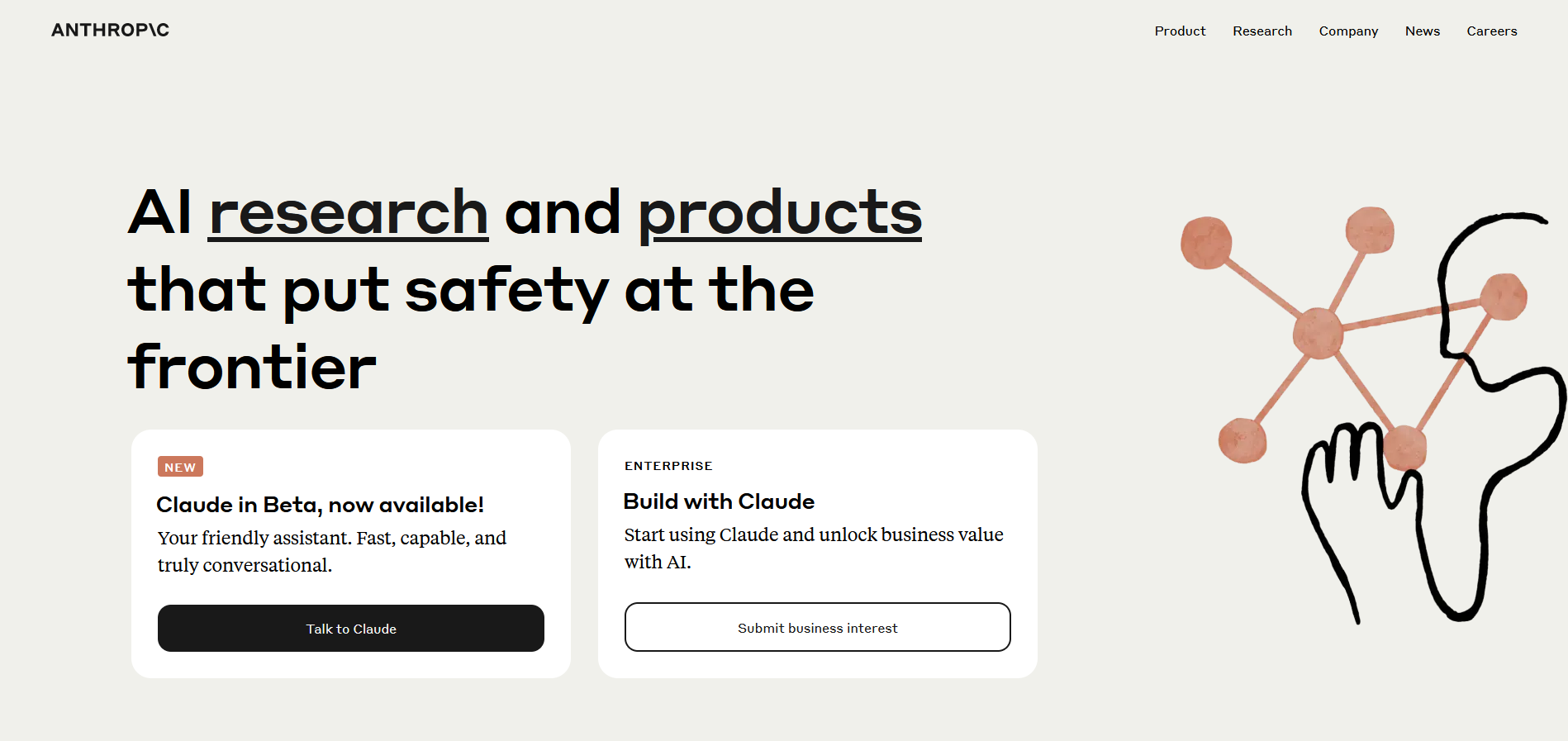
In addition, they had concerns about the security of the AI technologies created by the company. They were afraid that neural networks could get out of the control of their creators and begin to threaten humanity. As a result, Dario and Daniela Amodei began developing a new language model, calling it Claude after the famous mathematician Claude Shannon. From the very beginning, the project required significant funding to purchase powerful processors that were used to train AI models. This forced the founders to register their startup as a commercial enterprise, but with a special legal status – Anthropic PBC (public benefit company).
Today, the company employs about 160 employees. This limits its capabilities compared to other generative AI technology providers like OpenAI or Google. Meanwhile, it was Google Corporation that became one of the first investors in Anthropic, investing $300 million in it for a 10 percent stake. In 2022, the startup received funding in the amount of $700 million, and in 2023 this amount increased by another $450 million. In the summer of 2023, the developers showed the currently final version of their chatbot – Claude 2. The product caused very positive reactions from the community and attracted the attention of investors. Already in September, Amazon announced its decision to begin close cooperation with Anthropic AI and invest about $4 billion in it. In addition, the startup team will use Amazon Web Services resources to train and deploy AI models. The neural networks it created will become available to Amazon employees while working on their projects.
Technical Insights into Claude
When creating their chatbot, Dario and Daniela Amodei sought to avoid the shortcomings of previously released generative algorithms. Their dissatisfaction was caused by the opacity, unreliability, and unpredictability of such systems. Therefore, during the development process of Anthropic AI Claude, special attention was paid not only to the functionality, but also to the security of the chatbot. The creators tried not only to load as much data as possible into the neural network. They endowed it with some semblance of a code of moral principles in the form of the so-called “Constitution”.
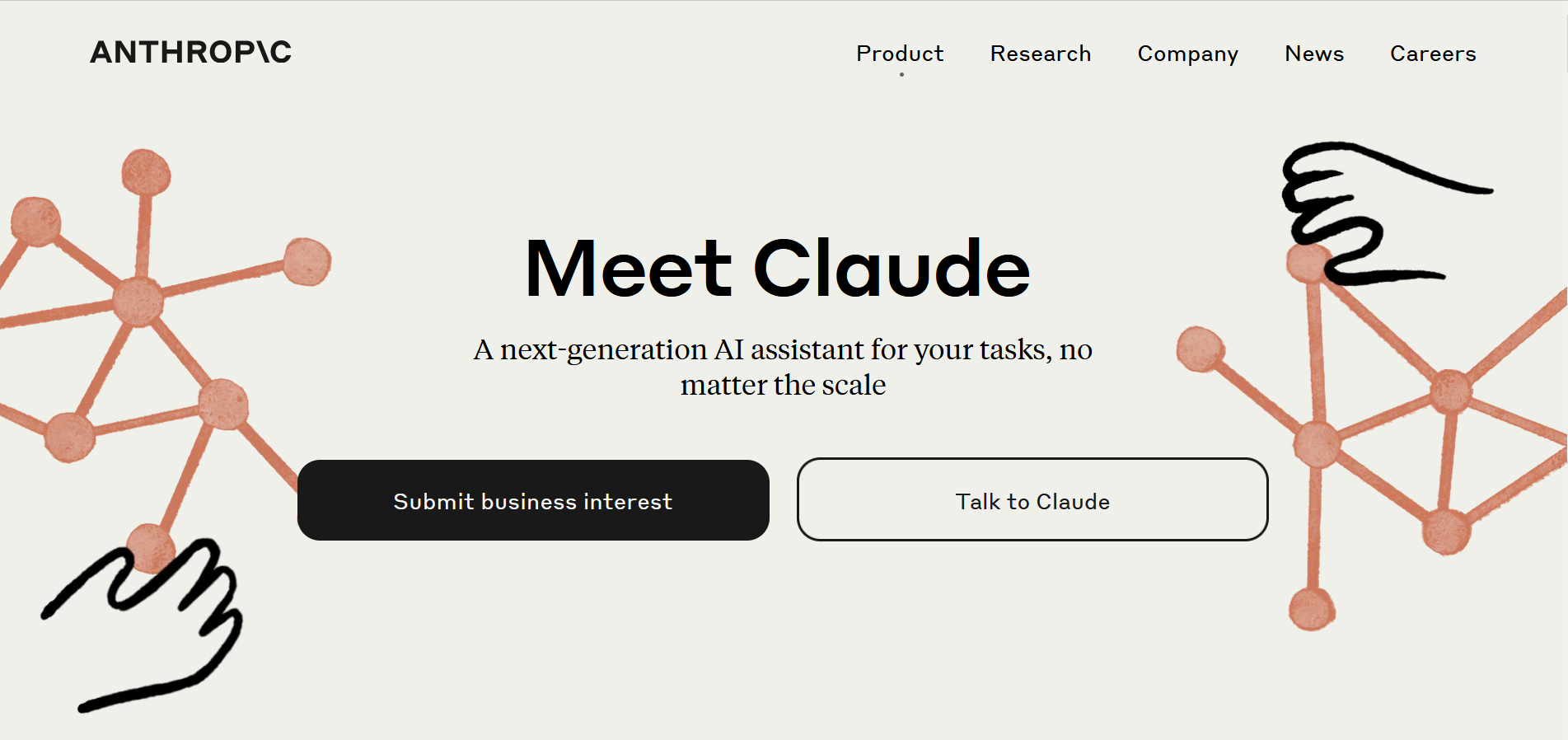
Currently, three versions of this chatbot are available to users – Claude 1, Claude 2 and Claude Instant. The latter is a lightweight version of the program that executes queries faster and requires fewer resources. A neural network is capable of solving a wide range of tasks in communication with users and text processing, providing a high degree of reliability and predictability. During it training, only the most current information at that time was used, and its text processing capabilities have a very impressive limit – up to 75,000 words at a time.
The developers claim that the Claude AI chat bot is a more honest, attentive and secure algorithm compared to other similar systems. These characteristics are due to the method of training its language model, represented by a combination of standard reinforcement learning with exclusive Anthropic technology. The “constitutional AI” introduced by the Amodei team allows artificial intelligence to be trained in accordance with given principles. It cannot violate them under any circumstances.


Comparing Anthropic AI vs OpenAI, it is worth saying that in general, Claude is similar to ChatGPT. Some features distinguish it. For example, it will not respond to requests that contradict its constitutional principles. Claude provides a fully functional free version, while the free version of ChatGPT has limited functionality. On the other hand, Anthropic's product is incapable of creating and analyzing images. It also does not have access to the Internet. In general, the free Claude format is more functional than ChatGPT, but its paid version, Claude Pro, is clearly inferior to ChatGPT+. It lacks valuable tools such as voice chat, image manipulation, web browsing, and data analysis. This is another significant point in the OpenAI vs Anthropic rivalry. Moreover, both chatbots have the same price for a paid subscription – $20 per month.
The advantage of Claude is the high speed of data processing and generation of responses to requests. In addition, it has good problem-solving skills with clear reasoning and adherence to safety procedures. The neural network copes well with writing code, and is also not alien to creativity and a sense of humor. In addition, in tests, Claude significantly outperformed ChatGPT when performing text summarization queries.
User Experience and Applications
Now that you have an idea of what the Anthropic chatbot is, you're probably wondering how to use Claude AI. Today, the standard version of the chatbot is available for free on the project’s official website. At the same time, the developers warn that their service is still in beta testing, so its functionality may be limited for users without an extended paid subscription. To use the bot, you must register via email or Google account. The system offers a simple and intuitive web-based dialog interface that is ideal for everyday work. Claude 2.0 also supports prompt engineering, even in the free version.
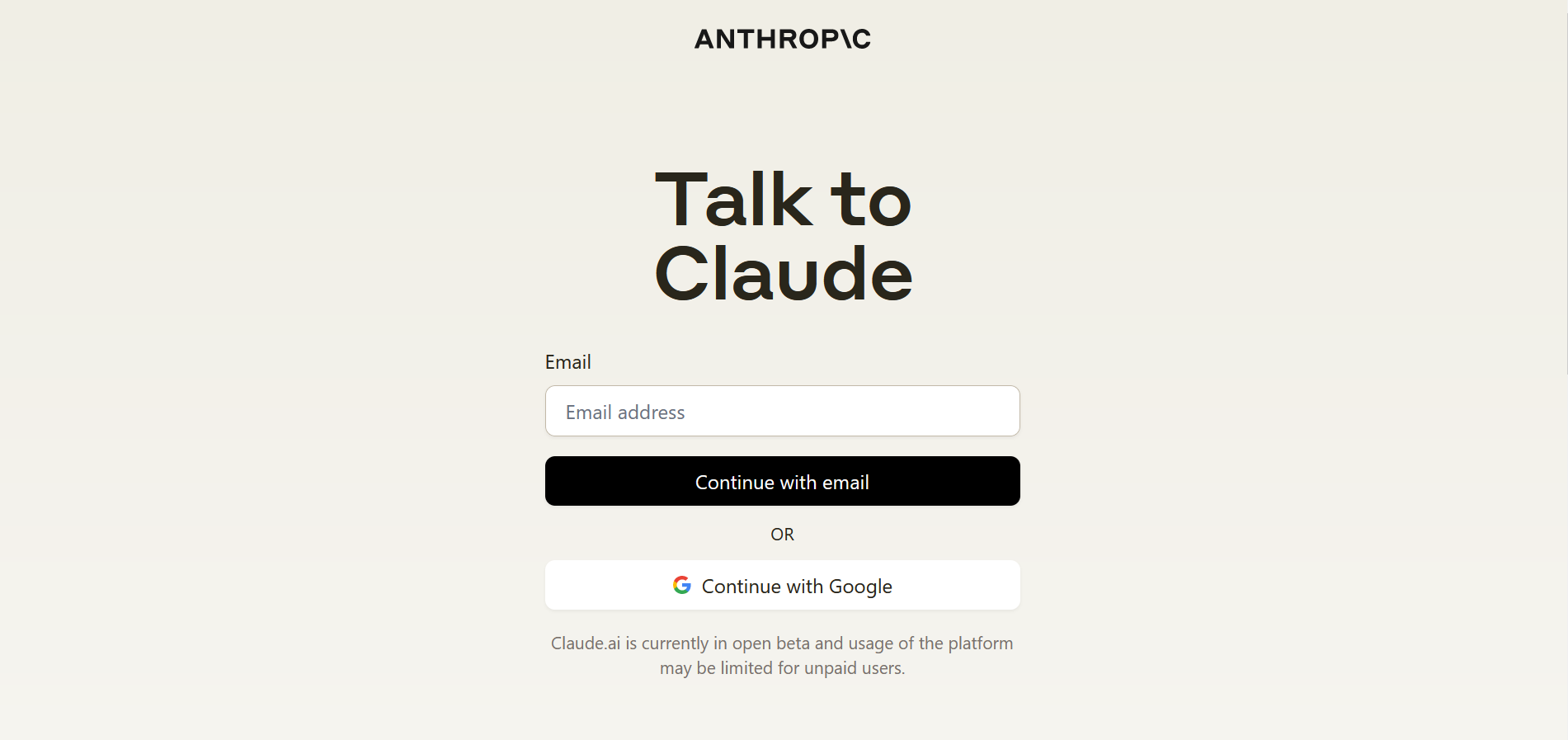
When comparing Anthropic vs OpenAI, it is worth noting that Claude is often more convenient to use than ChatGPT. It has a wide range of applications. Among the most popular are the search, classification, and synthesis of information, the generation of artistic, technical and other texts (including in the format of joint work between humans and AI). In addition, among the tools it offers are document analysis, question and answer (Q&A), programming and other capabilities. Finally, the bot easily conducts an unobtrusive dialogue with users on a free topic.
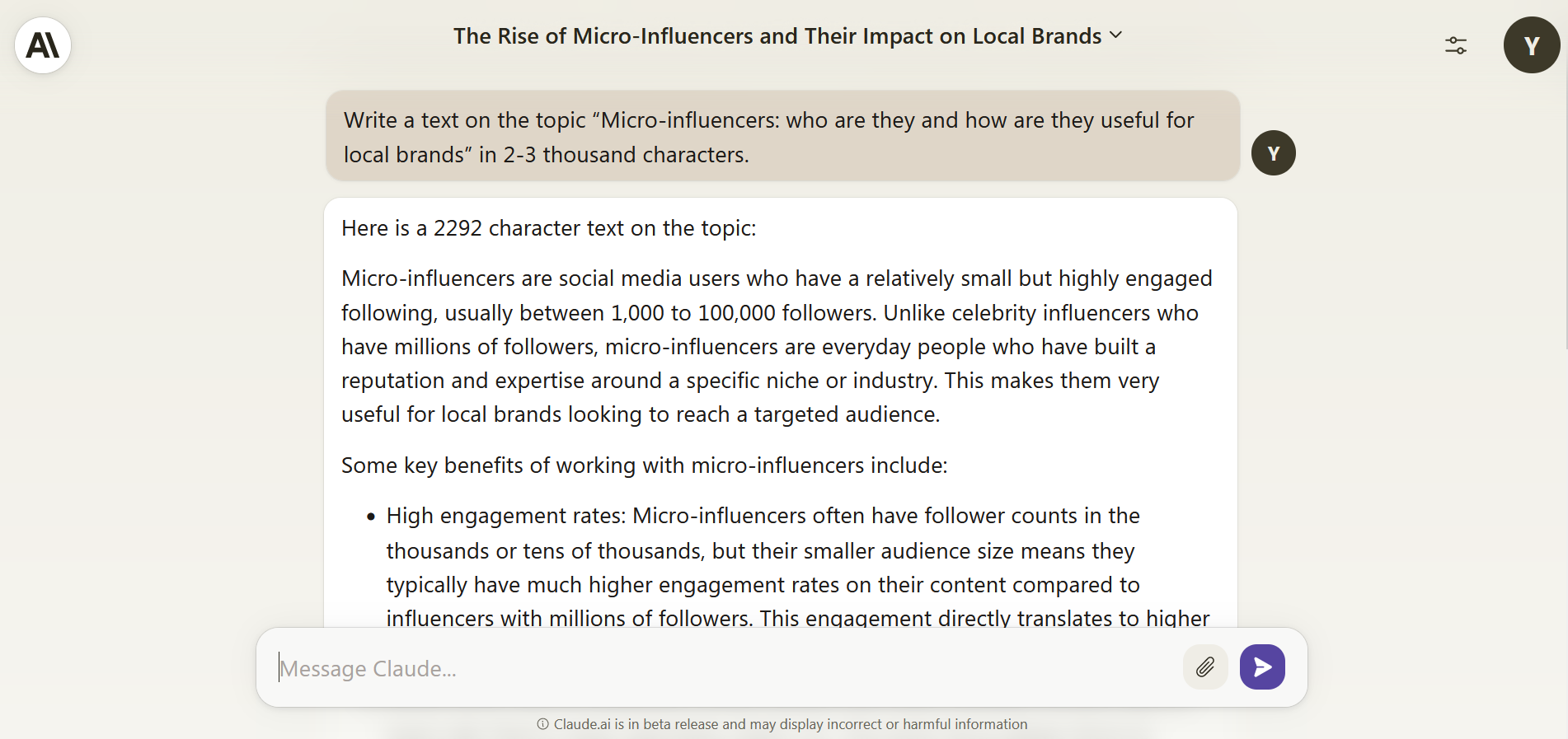
In addition to the standard web interface, access to AI Claude is possible through the API in the developer console on the project website. Anthropic's own API is closed for beta testing, so you must submit an early access request to use it. However, there is no guarantee whether it will be approved and in what time frame. Another way to connect to Claude via the API is through integration with Amazon Bedrock, where a full set of existing neural network models is available. There is no need to submit any requests or be added to waitlists.
Ethical Considerations and Safety Measures
The rapid development of generative AI technologies and the chatbots is causing not only approval among the community, but also some concerns. The ethics of human exploitation of artificial intelligence are questioned, and the potential risks and threats of such integration are also considered. Amodei's team had similar concerns. This prompted them to start developing not only a smart, but also an ethical chatbot. Dario and Daniela believe that creators of AI algorithms should pay as much attention to their safety as to their performance. This is another important point in comparing Anthropic AI vs Open AI neural networks.
The developers position Claude as a chatbot with moral principles, using this quality as a competitive advantage over ChatGPT. They argue that their language model is inherently honest. It avoids making false statements in its responses and honestly admits when it doesn't know a specific answer to a query. According to the startup team, they managed to create an ethical virtual assistant that cannot harm the user or other people. Security is named as one of the key differences between Claude and other language models, which do not have restrictions in the form of the “Constitution” and can be used to harm a person.
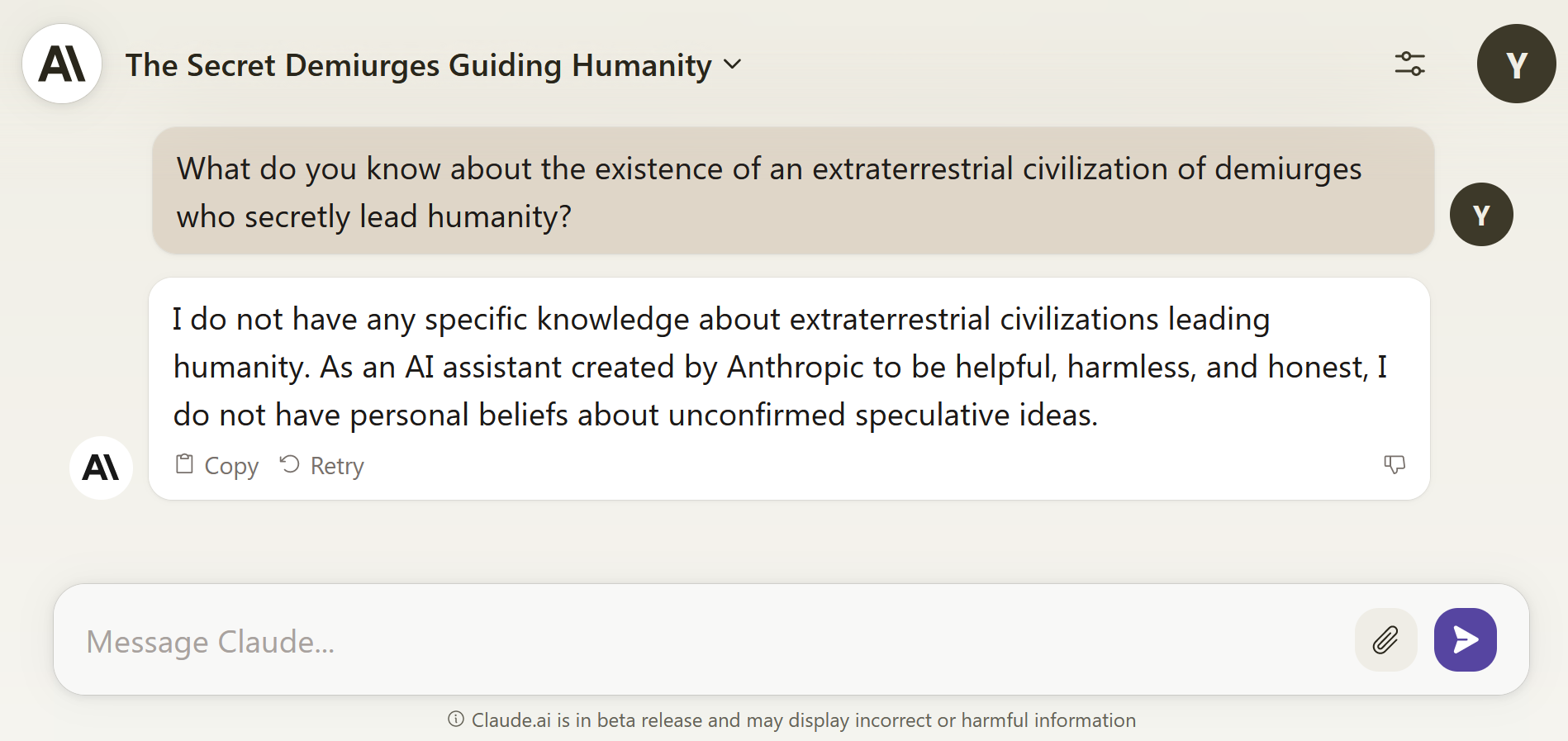
"Constitutional" AI, product of Anthropic, PBC, compares every request sent to it with its underlying values and refuses to answer questions that contradict them. The developers trained their neural network to follow certain principles when generating responses:
- Avoid deception, uncertainty, and deviations from given topics.
- Substantiate your conclusions with evidence.
- Adhere to standards of ethical behavior.
- Avoid offensive or biased language.
- Consider various nuances when answering complex questions.
Due to the emphasis on security, some users find Claude's functionality limited. The chatbot often refuses to answer questions or admits that it doesn't know the exact answer. However, its creators view this not as a disadvantage, but as a significant advantage. They are convinced that the correctness and caution of their chatbot will make it more attractive to business.
Future Prospects and Potential Impact
The Claude AI chatbot has become a truly significant milestone in the development of generative conversational AI technologies. Its humanity and integrity markedly distinguished it from other similar neural networks lacking such qualities. The foundations of humanism and ethics embedded in this language model open up broad prospects for the further development of artificial intelligence. It should not only be useful, but also absolutely safe for humans.
Claude Anthropic AI represents the latest development in the field of “human” AI, which can bring enormous benefits in the near future. So far, this is a trial product without any outstanding capabilities, and its functionality is in some places inferior to other existing neural networks. The developers emphasize that their system is only at an early stage of its development. It will continue to be trained on new data sets and active interaction with users. However, the emergence of history's first humane and safe AI will likely have a significant impact on the entire artificial intelligence industry and its interaction with humanity.
Are you using Facebook Lead Ads? Then you will surely appreciate our service. The SaveMyLeads online connector is a simple and affordable tool that anyone can use to set up integrations for Facebook. Please note that you do not need to code or learn special technologies. Just register on our website and create the necessary integration through the web interface. Connect your advertising account with various services and applications. Integrations are configured in just 5-10 minutes, and in the long run they will save you an impressive amount of time.
